Photo gallery: The top 10 veterinary schools in America, according to U.S. News
See who's educating the next generation of leaders.Know someone who is searching for the right veterinary school? Davis, California, may be the place to start according to the U.S. News and World Report's 2015 edition of “America's Best Graduate Schools.” The report gathered surveys sent to deans, administrators, and faculty members at schools accredited by the American Veterinary Medical Association (AVMA), and the School of Veterinary Medicine at University of California, Davis, came out on top.
Know someone who is searching for the right veterinary school? Davis, California, may be the place to start according to the U.S. News and World Report's 2015 edition of “America's Best Graduate Schools.” The report gathered surveys sent to deans, administrators, and faculty members at schools accredited by the American Veterinary Medical Association (AVMA), and the School of Veterinary Medicine at University of California, Davis, came out on top.
Eleven schools earned a place among ranks on through 10 this year. Here's a complete look at the top picks from U.S. News and World Report:
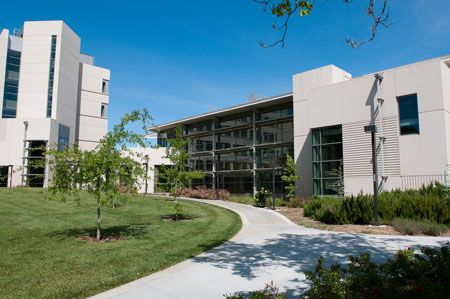
1. University of California, Davis | 4.5/5 score
Rising from the number-two spot in the last rankings published in 2011, the School of Veterinary Medicine at the University of California, Davis, claimed number one this year.
The school has more than 500 students and residents, according to a university release. UC Davis cares for more than 48,000 animals per year at a teaching hospital in Davis and satellite clinics in Tulare and San Diego.
The school partners with other university departments and groups across the country as a member of the One Health initiative. The United States Agency for International Development (USAID) has awarded UC Davis a $100 million grant to monitor pathogens, discover viruses and improve global health strategy in more than 20 countries.
“The school's cadre of faculty, staff, students and alumni are advancing health through their research endeavors, clinical patient care, educational pursuits, outreach and public service locally and globally,” says Michael Lairmore, DVM, PhD, dean of the veterinary school, in a university release. “This national recognition and number-one ranking is a testament to the school's community, its irrepressible dedication and energy, and high standards for excellence in leading veterinary medicine and advancing societal needs.”

2. Cornell University | 4.1/5 score
Falling from its number-one ranking in 2011 to second this year, the College of Veterinary Medicine at Cornell University (CVM) has 382 DVM students and 129 graduate students.
The program features the Cornell University Hospital for Animals, Cornell University Veterinary Specialists in Stamford, Cornell Ruffian Equine Specialists in Elmont and the Animal Health Diagnostic Center in Ithaca to serve animals and owners. The school awarded the first DVM degree in the U.S. in 1876, university representatives say. The program is renovating its anatomy, tutorial and student surgery areas to offer an e-learning center, cafeteria and study spaces. The project is expected to be ready in 2017.
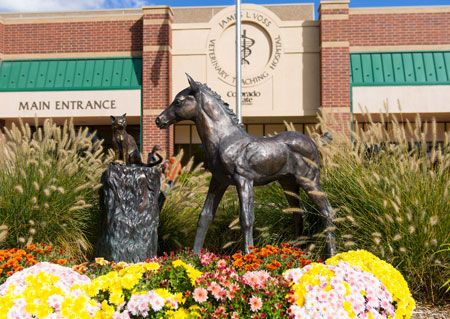
3. Colorado State University | (Tie) 3.9/5 score
Receiving approximately 1,500 applications every year, Colorado State University's College of Veterinary Medicine and Biomedical Sciences (CVMBS) accepts approximately 130 students in each class. Students can combine their studies in a doctorate, a master's degree in business administration and a master's degree in public health. The program has an equine orthopedic research center, one of the world's largest animal cancer centers and a diagnostic medicine program that is a member of a nationwide system that monitors for emerging infectious diseases. Its Veterinary Teaching Hospital cares for thousands of small animals every year. CVMBS also has research programs in infectious diseases, cancer, neuroscience, occupational health, environmental toxicology and animal reproduction.
“We're proud and humbled to be recognized as one of the very best veterinary schools in the world, and we're pleased to help represent overall excellence in teaching, research, outreach and clinical services at Colorado State,” says Mark Stetter, DVM, DACZM, dean of CVMBS, in a university release.
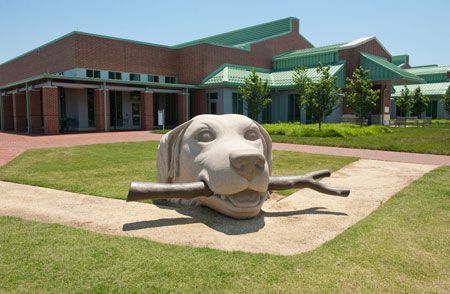
3. North Carolina State University | (Tie) 3.9/5 score
The North Carolina State University's College of Veterinary Medicine (CVM) has 358 DVM students, 65 graduate students and 76 interns and residents.
The 180-acre campus includes 20 buildings and has a working farm that serves as a teaching animal unit. The NC State Veterinary Hospital and the 110,000-square-foot Randall B. Terry Jr. Companion Animal Veterinary Medical Center care for 28,000 animals every year. Its House Officer Program offers one- to three-year internships in more than 20 clinical specialties, and aspiring veterinary researchers can participate in the Clinician Scientist Training Program.

5. Ohio State University | (Tie) 3.7/5 score
The Ohio State University College of Veterinary Medicine admits up to 162 students in each class. The program's Veterinary Medical Center-one of the world's largest specialty referral and emergency centers, representatives say-receives 35,000 visits every year. The center is made up of four facilities: The Hospital for Companion Animals, the Hospital for Farm Animals, Galbreath Equine Center and a satellite emergency and specialty practice for companion animals in Dublin, Ohio.
The program also features one of the largest clinical trial offices in the nation, a farm animal and ambulatory teaching unit in Marysville, the Food Animal Health Research Program in Wooster for detecting, controlling and preventing disease, and a partnership with the Capital Area Humane Society (CAHS) for experience in shelter medicine. A $30 million expansion construction project funded by private donations was started last year. The program is part of the One Health initiative.
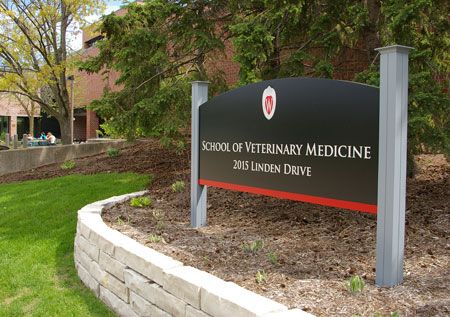
5. University of Wisconsin–Madison | (Tie) 3.7/5 score
The University of Wisconsin School of Veterinary Medicine (SVM) accepts approximately 90 students every year. The SVM features the UW Veterinary Care teaching hospital and offers a wide variety of experiences in food animal medicine, shelter medicine, zoological medicine and other specialties.
“I'm immensely proud of everyone who works and learns here at the UW School of Veterinary Medicine,” says Mark D. Markel, DVM, PhD, dean of SVM, in a university release. “Our exceptional students, faculty and staff-past and present-are the reasons we continue to be recognized as one of the most outstanding schools of veterinary medicine in the United States.”
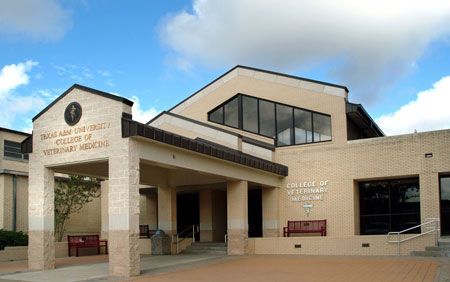
7. Texas A&M University | (Tie) 3.6/5 score
The Texas A&M College of Veterinary Medicine & Biomedical Sciences (CVM) consists of approximately 530 DVM students. It offers doctorate degrees in biomedical sciences and veterinary pathobiology and a master's degree in biomedical sciences. The school belongs to the One Health initiative and features the Michael E. DeBakey Institute for Comparative Cardiovascular Science and Biomedical Devices and the Schubot Exotic Bird Health Center.
More than 3,000 veterinarians across the country have referred patients to the school's Veterinary Medical Teaching Hospital, and the facility receives 24,000 visits every year. The school also has hospitals for large and small animals. The program started work on a $120 million veterinary building project in 2014.
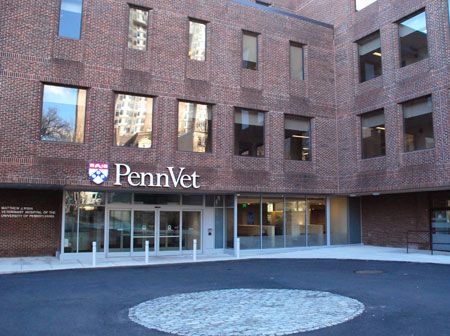
7. University of Pennsylvania | (Tie) 3.6/5
The University of Pennsylvania School of Veterinary Medicine accepts 125 students per class to study at two campuses featuring diagnostic and research laboratories. The New Bolton Center-a 700-acre large-animal hospital in Kennett Square-cares for 4,000 horses and farm animals each year, and its field service visits almost 36,000 patients. The facility also includes swine, dairy and poultry medicine. Penn Vet's Ryan Hospital in Philadelphia cares for more than 31,000 companion animal patients every year. The program participates in the One Health initiative.
“From its earliest days, Penn Vet has set itself apart," says Joan C. Hendricks, VMD, PhD, dean of PennVet, in a university release. "Like the visionary founding father and physician Benjamin Rush-who proposed Penn Vet back in 1807-our faculty and students are dedicated to both animal and human health for the benefit of the whole world. This ranking reflects our ongoing commitment to providing compassionate care, pursuing groundbreaking research, and teaching our students to carry on a tradition of veterinary excellence."
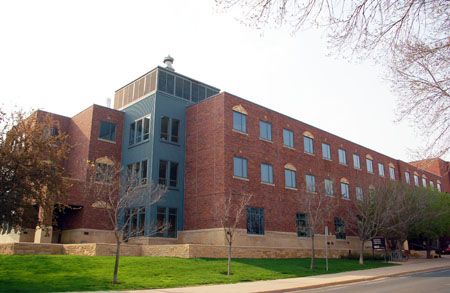
9. University of Minnesota | 3.4/5 score
The University of Minnesota College of Veterinary Medicine admits 102 veterinary students per year and offers a dual-degree program in veterinary medicine and public health. The program's Veterinary Medical Center teaching hospital treats more than 35,000 cases every year.
The school's facilities include a diagnostic laboratory as well as equine and raptor centers. The program also features the Center for Animal Health and Food Safety, National Center for Food Protection and Defense, and the Global Initiative for Food Systems Leadership.
“The mission of our college is to improve the lives of animals and people, and we strive to do this on a daily basis through research, service and providing a comprehensive education to our students,” says Trevor Ames, DVM, dean of the College of Veterinary Medicine, in a university release. “We are proud that our efforts are recognized as being among the top in the nation. This recognition will fuel our efforts to continue making a difference in veterinary medicine and the world we all share.”
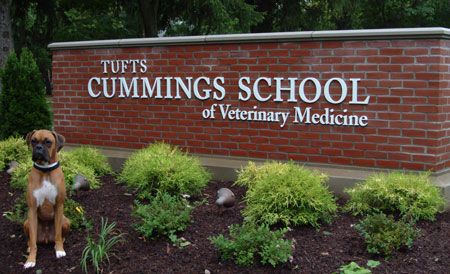
10. Tufts University | (Tie) 3.3/5 score
The Cummings School of Veterinary Medicine at Tufts features three teaching hospitals that treat 28,000 patients per year, according to its website. Students gain experience at these seven sites:
1. Foster Hospital for Small Animals
2. Lerner Spay and Neuter Clinic
3. Wildlife Clinic
4. Hospital for Large Animals
5. Tufts at Tech Community Veterinary Clinic (for low-income clients)
6. Tufts Ambulatory Service (serving food animal, small ruminant and equine clients).
7. Tufts Veterinary Emergency Treatment and Specialties
The United States Agency for International Development (USAID) awarded Tufts and the University of Minnesota a grant for up to $50 million to help protect against pandemic threats with workforce training, according to the university's website. The school is a member of the One Health initiative. Translational and clinical research, shelter medicine, comparative oncology, wildlife and conservation medicine and regenerative medicine are among the program's areas of study.

10. University of Georgia | (Tie) 3.3/5 score
The University of Georgia College of Veterinary Medicine (UGA) has 426 DVM students, 67 PhD candidates and 34 residents, according to its website. The school's post-graduate offerings for DVMs include avian medicine (MAM and MAHM) and food animal medicine (MFAM). The program also has the Poultry Diagnostic and Research Center and the Southeastern Cooperative Wildlife Disease Study (SCWDS). UGA is the only public university that offers an international veterinary medicine certification program. It also offers practicing veterinarians continuing education courses.
UGA's new teaching hospital opens in March. It is more than twice the size of its old facility that treated 24,500 small and large animals every year and offered more than 25 specialty services.